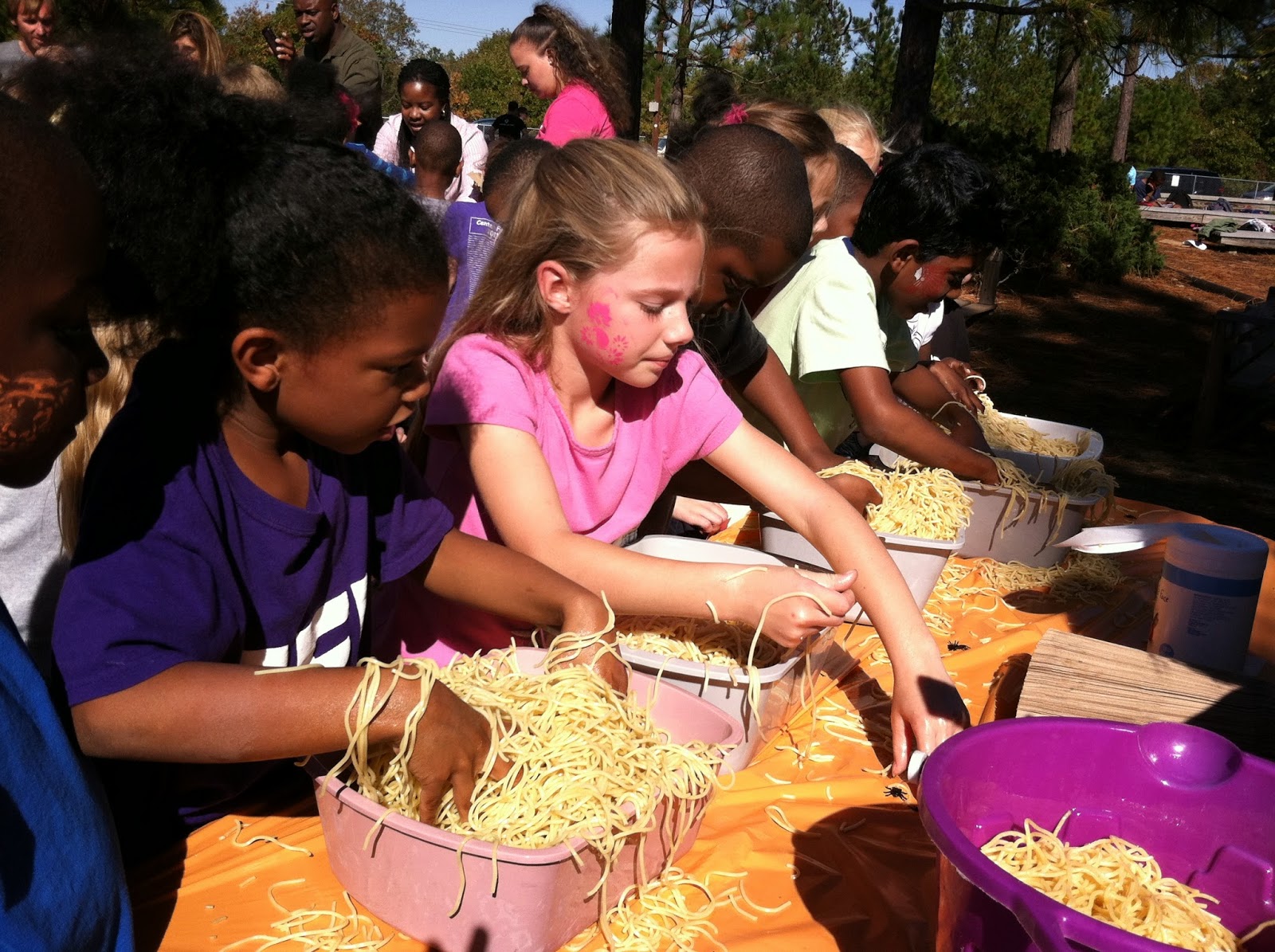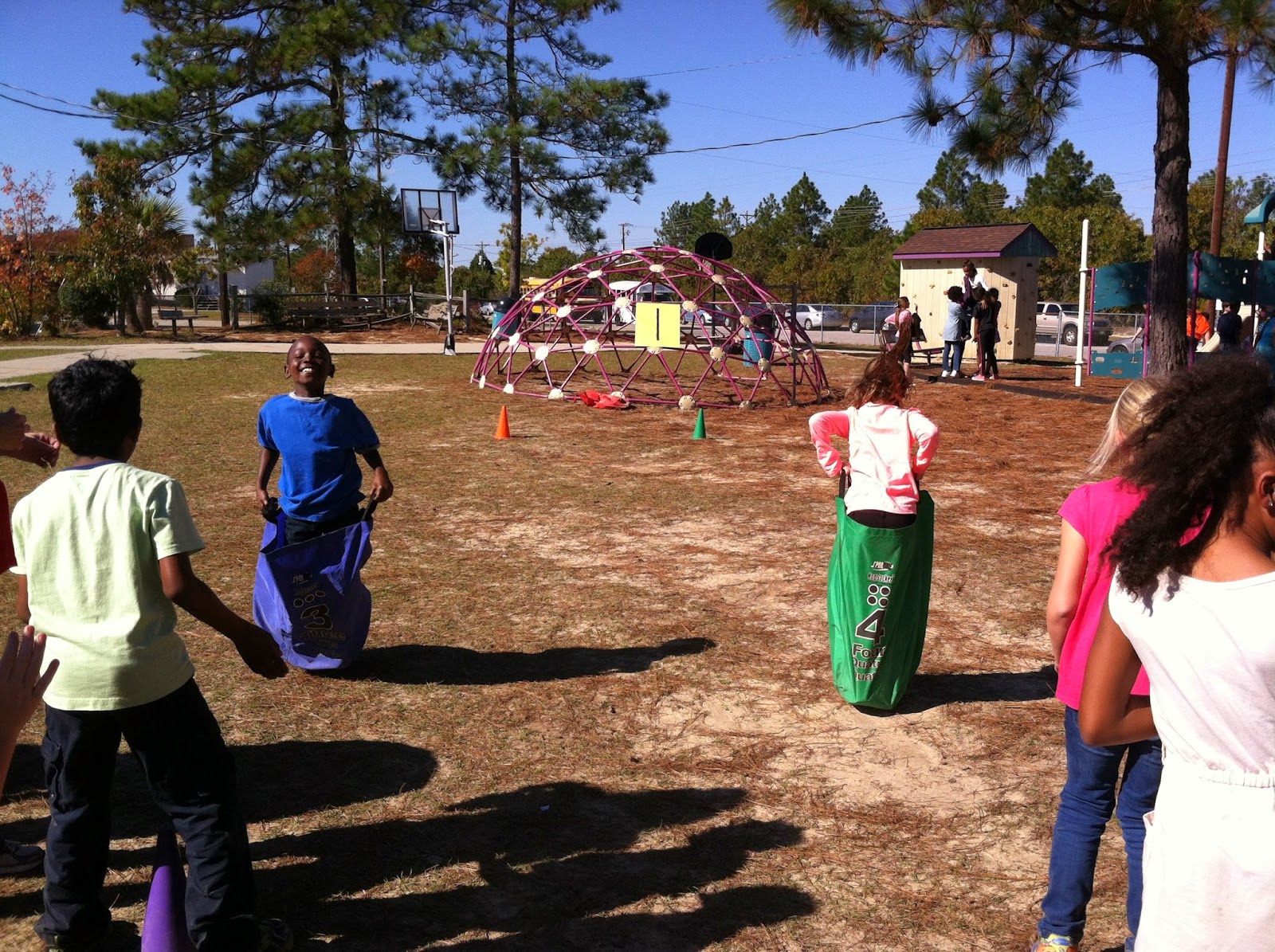It was such a great experience presenting alongside our faculty at the National Council of Teachers of English conference this past weekend. I was even more moved at how much positive feedback our class received for their work with researching plastic pollution. Your children truly did "teach teachers how to teach" and all I did was give an honest retelling of what they did. I also was able to attend sessions that helped challenge and encourage me. The kids were great while I was gone and Ms. Newton rocked the house.
Observations/Experiences from Washington:
1. It gets cold in Washington. Hats are recommended.
2. I ate some of the best food of my life: Chesapeake crab cakes, Portuguese chicken wings, omelets, Brick oven pizza...
3. They have a Peeps store in Washington. Like, just Peeps.
4. Politicians are NOT everywhere.
5. I got to meet people from all over our country. Very interesting.
6. People do not follow the Gamecocks. I asked if they could put them on the TV in a restaurant and they looked at me like I was crazy.
7. The Potomac River may be one of the most beautiful rivers I've ever seen personally.
8. They have really big chairs in Washington - Mr. Foote sized chairs.
Homework:
1. Reading log during the break. We should be reading daily, even when we're not in school. Due Monday.
2. Study the 6's times table. 15 minutes a day, even during the break. Last time we had a break, our class didn't do so well collectively. So, please encourage your child to study these daily. Thank you.
Notes:
1. I was welcomed back to class with our Gathering papers for NEXT WEEK! That's right, December 5th, we have Gathering. More to come soon after we have a class meeting about it.
2. Really, that was the only note. But, I felt like I had to put a 2 if I had a 1.
Monday, November 24, 2014
Wednesday, November 19, 2014
Native American Study
The 2nd and 4th nine-week periods are going to "history-heavy". I really enjoy history. My dad was a history buff and would teach us all about military history. I remember going to museums, observing artifacts, wondering what the people who used them might be like.
If you don't have a reason to study history, I believe it simply becomes facts and dates to remember. But, history has context. It involves different perspectives, conflict, progress, etc. And sometimes, it has bias, which we will work carefully at detecting. Our class will study history in an effort to understand how/why things are the way they are today.
We began with Native Americans. Before we began the unit, the students wrote down lists of things they thought they already knew about Native Americans, where they got that information from, and then drew a picture of what they thought a Native American looked like.
Then, we looked through 20 trade books about Native Americans and came up with some facts. We talked about stereotypes; just because we found a fact about one Native American tribe did not necessarily mean it applied to all tribes. Some examples of facts we found were some Native Americans hunted, while others planted; Native Americans had different languages and dialects; and, not all Native Americans lived in tepees.
After a few days of reading about Native Americans and discussing new information, we drew what we thought Native Americans looked like today.
We looked at the drawings as a class and came up with a list of observations:
"Most drawings had them wearing everyday clothes."
"They were living in regular homes."
This led to a discussion about why the Native Americans had changed their clothes and homes.
"Maybe we made them change."
"Maybe they thought our clothes and homes were better."
"We thought they would want the change."
"Since they were living in our country, they changed."
Quotes like this are so important to what we do in the classroom. In order to understand another perspective, you have to understand your own.
We started diving more into the relations between early North American settlers and the Native American tribes and we learned that there were major conflicts on land (Native Americans did not believe you could own land, but Europeans believed that owning land gave you wealth and power), religion (even though some settlers left England because of persecution about their beliefs, they tried to force the Native Americans to convert to their religion), disease (smallpox), and misunderstandings/battles.
Then, we talked about what the American government did to remove Native Americans from the land they inhabited. The shocking thing about this is that we looked in the index of our textbook and the Trail of Tears or the Indian Removal Act of 1830 were nowhere to be found. Dean found a passage about Andrew Jackson, the President who ordered the Native Americans to leave, and it only mentioned the positive things that he had done.
We looked through the textbook and put post-it notes on all the pages that had information about Native Americans and found that the first 5th of the book had information about Native Americans, but the remaining 4/5 had no information about Native Americans at all. It was like they had vanished without any explanation as to why.
We talked about why this might be. One student said, "Maybe they don't want us to feel bad because we're living where they once did." It's an interesting thought. There is that awkward balance between learning from the atrocities toward Native Americans in the past, and knowing that I'm happy living in Columbia where Native Americans tribes used to live.
On Thursday, the students will write reflections on what they learned or are thinking about in regards to our Native American study. I'll be interested in reading what they have to say.
Monday, November 17, 2014
Homework 11/17-11/24
Your child will come home with a math packet tonight. The first two pages can be done immediately (word problems). Students should show their work on these two sheets and review them with you before submitting them next Monday. The last two sheets (rectangles) do not need to be done until Wednesday, as we will be going over this skill in class. The entire packet is due Monday.
Your child will bring home a Scholastic News magazine. They are to read the articles, answer the questions on the back, and write a response about the Mohawk Indian article. This is due Monday.
There will be a cumulative timed test (0,1,2,3,4,5,9,10) next Monday. As these timed tests get more complicated, it becomes even more important that the students study for at least the required 10 minutes each day (including weekends). Thank you for your help in this matter.
---------------------
I will not be here Thursday or Friday this week, as I will be at the NCTE Conference with several of our teachers. Miss Newton will run the class with a substitute on Thursday and we will have the same substitute on Friday.
Your child will bring home a Scholastic News magazine. They are to read the articles, answer the questions on the back, and write a response about the Mohawk Indian article. This is due Monday.
There will be a cumulative timed test (0,1,2,3,4,5,9,10) next Monday. As these timed tests get more complicated, it becomes even more important that the students study for at least the required 10 minutes each day (including weekends). Thank you for your help in this matter.
---------------------
I will not be here Thursday or Friday this week, as I will be at the NCTE Conference with several of our teachers. Miss Newton will run the class with a substitute on Thursday and we will have the same substitute on Friday.
Monday, November 10, 2014
Homework 11/10-11/17
1. Spelling Check-in Friday: along, might, close, something, seemed, next, hard, open, example, beginning.
2. Multiplication check-in Monday: just the 4's times table. Flash cards are being sent home.
3. Write a nonfiction piece about one of the following questions. We have discussed that a nonfiction piece is about 2 pages long and has an introduction that catches your reader's attention and introduces your point, a body paragraph with a topic sentence and reasons or personal stories that clearly support your point, and a closing paragraph that wraps up the main points and reminds the reader why the subject is important. Please review this piece with your child before they turn it in on Monday. Also, let them take the lead on planning and writing this piece. This is due Monday.
Questions (choose 1):
"What is something you feel passionate about and why does it matter to you?" --This could be music, sports, pollution, friendship, honesty, freedom, exercise, eating healthy, playing outside, etc. The key here is on going deeper into why it matters to them and why others should care about it as well.
"Why should kids be wise with their money and how would you teach them to be wise with their money?"
"What should kids do to make sure they get into the college or career of their dreams?"
2. Multiplication check-in Monday: just the 4's times table. Flash cards are being sent home.
3. Write a nonfiction piece about one of the following questions. We have discussed that a nonfiction piece is about 2 pages long and has an introduction that catches your reader's attention and introduces your point, a body paragraph with a topic sentence and reasons or personal stories that clearly support your point, and a closing paragraph that wraps up the main points and reminds the reader why the subject is important. Please review this piece with your child before they turn it in on Monday. Also, let them take the lead on planning and writing this piece. This is due Monday.
Questions (choose 1):
"What is something you feel passionate about and why does it matter to you?" --This could be music, sports, pollution, friendship, honesty, freedom, exercise, eating healthy, playing outside, etc. The key here is on going deeper into why it matters to them and why others should care about it as well.
"Why should kids be wise with their money and how would you teach them to be wise with their money?"
"What should kids do to make sure they get into the college or career of their dreams?"
Monday, November 3, 2014
Homework 11/3-11/10
1. Spelling list (Friday): light, thought, head, under, story, saw, left, don't, few, while
2. Cumulative timed test (Monday): 0, 1, 2, 3, 5, 9, 10 -- (New expectation) Study 10 minutes each day.
3. Math worksheets (Monday): Draw arrays to solve the math equations. Students should focus on neatly constructing their arrays and double checking rows and columns. They are to be drawn on the worksheet itself and solved.
4. Read the article "Heads Up" in the Scholastic News magazine. Complete the reflection sheet after reading the article. (Monday)
Subscribe to:
Posts (Atom)



































